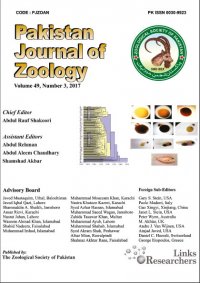Effect of Zinc Supplementation on Haematological Parameters, Biochemical Components of Blood and Rumen Fluid, and Accumulation of Zinc in Different Organs of Goats
Effect of Zinc Supplementation on Haematological Parameters, Biochemical Components of Blood and Rumen Fluid, and Accumulation of Zinc in Different Organs of Goats
Elmas Ulutaş1,*, Abdullah Eryavuz2, Aziz Bülbül2, Abdur Rahman3,*, İsmail Küçükkurt4 and Cangir Uyarlar5
ABSTRACT
To share on other social networks, click on any share button. What are these?










